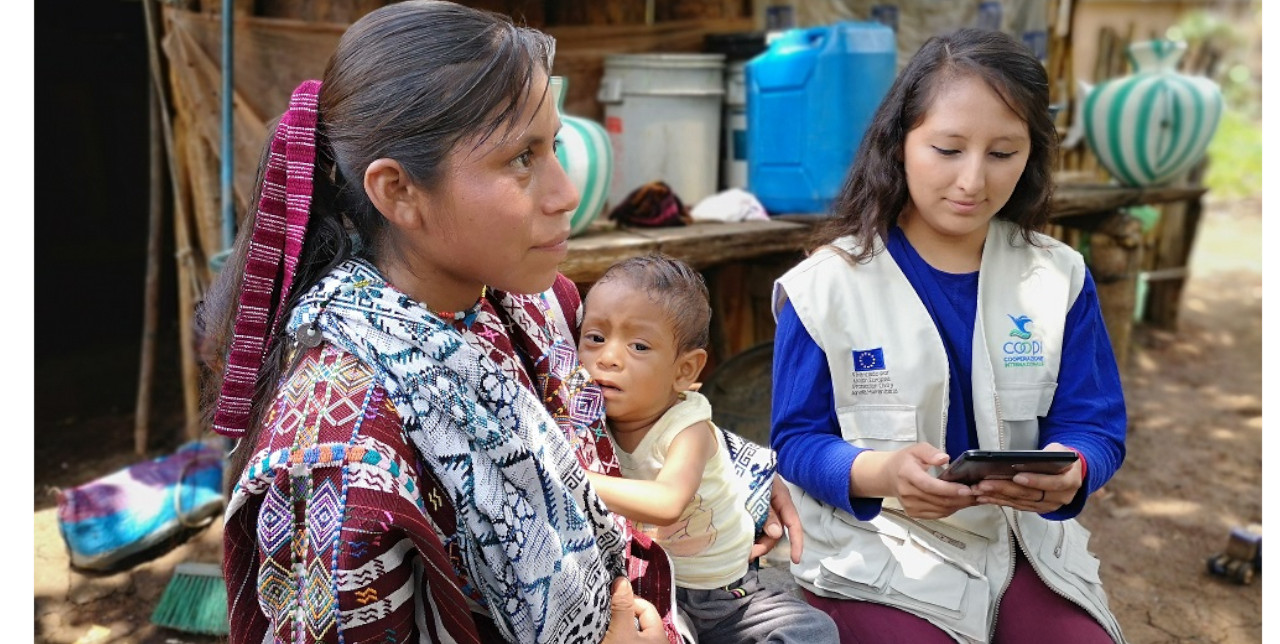08-07-2019 | di COOPI
Guatemala: 1-year-old Aníbal is recovering from malnutrition
Aníbal is one year old and suffers from acute and severe malnutrition. This is quite common in the small community of Aldea Chiquilá, in the region of Huehuetenango, Guatemala.
"We often didn’t have enough money to eat and when we run out of corn, we only ate once or twice a day. Sometimes we made him eat herbs or tortillas with salt but he refused them," says Natividad, Aníbal’s mother.
COOPI staff took care of Aníbal – they provided his family with fortified flour and cash to allow them to purchase food for a healthier and more diversified diet that would improve the child’s health.
“Thanks to COOPI," continues Natividad, "we bought fruit and other food. Now Aníbal eats more.” After the first medical follow-up, the child’s health has improved, although he still needs support to completely recover.
Natividad and Aníbal live in an isolated community with very limited access to drinking water –their village is perched on the mountains and water is only fetched by small wells built by its inhabitants.
Poor water quality and poor hygiene result in an increase in diarrhoeal diseases that aggravate the food insecurity in Huehuetenango. Extreme and frequent climatic phenomena are another additional stress factor for communities.
A rapid response is needed – this is why COOPI is now implementing the Directorate-General for European Civil Protection and Humanitarian Aid Operations ECHO -funded project “Response to humanitarian needs in the most vulnerable communities in Guatemala Dry Corridor affected by recurrent food insecurity and by the weakness of institutional capacities in building resilience and providing social protection” in the four municipalities of the Huehuetenango region.
The project, which began in October 2018 and will end in December 2019, will contribute to improve food security and livelihood of vulnerable families in Quiché, Huehuedenango, Baja Verapaz and Chiquimula, by facilitating their access to social safety nets and promoting their livelihoods resilience at household, community and institutional level.
We aim to improve the life conditions of about 17,507 people through demonstrative actions of monetary transfers, local health facilities strengthening, good practices on livelihoods protection against disasters and climate risks.
COOPI continues to work in Guatemala to find more effective solutions to food insecurity problems, while encouraging the participation of the population and coordinating with local governments to implement local policies and plans in order to allow investment in sustainable and longer-term actions.




 Guatemala
Guatemala